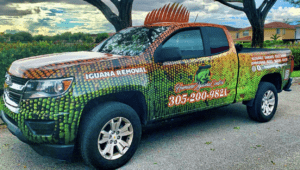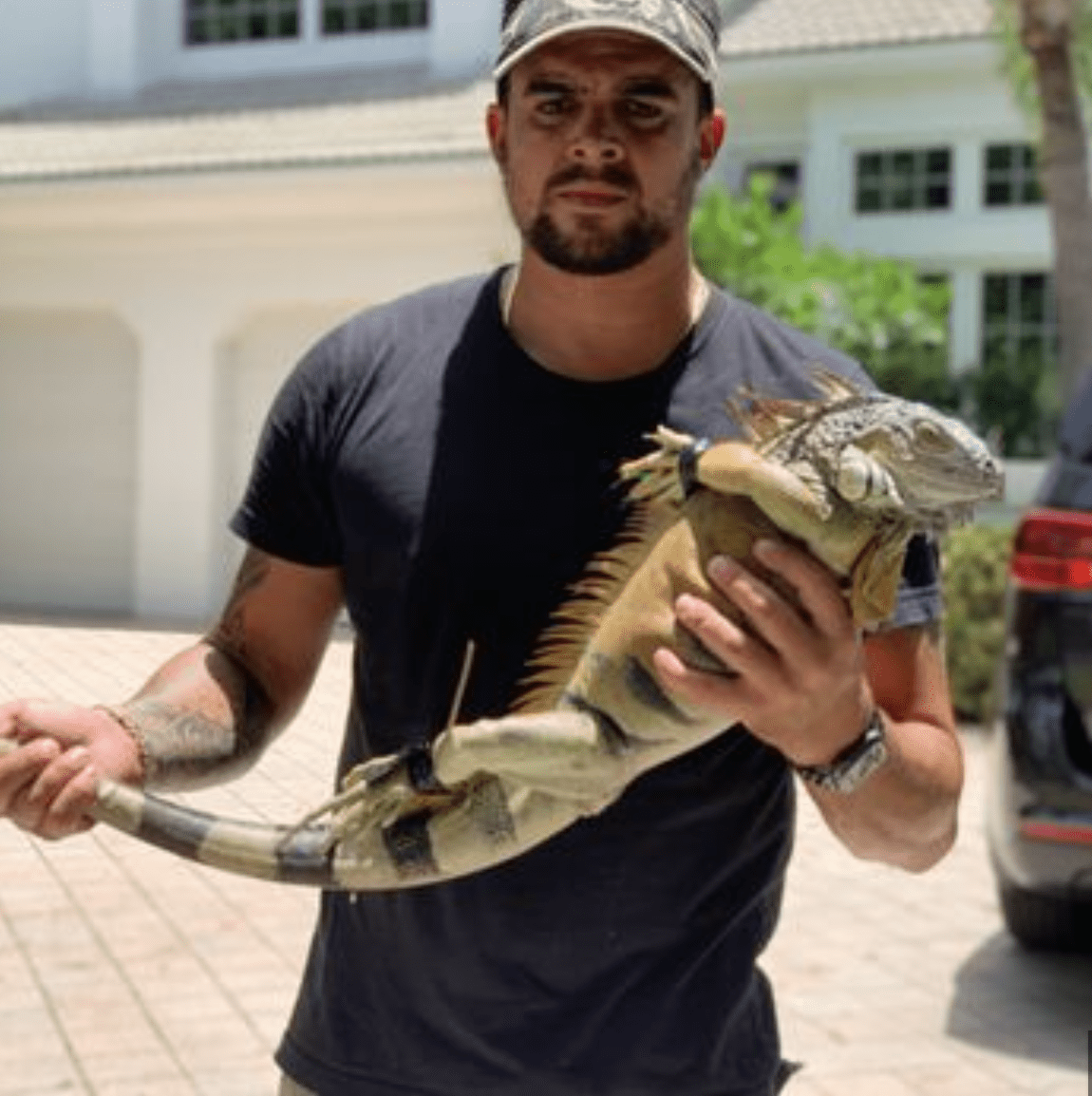Florida Fish and Wildlife Conservation Commission – Green iguanas are not native to Florida and are considered an invasive species due to their impacts to native wildlife.
Like all nonnative reptile species, green iguanas are not protected in Florida except by anti-cruelty law and can be humanely killed on private property with landowner permission.
This species can be captured and humanely killed year-round and without a permit or hunting license on 32 public lands in south Florida.
Green iguanas cause damage to residential and commercial landscape vegetation and are often considered a nuisance by property owners. Iguanas are attracted to trees with foliage or flowers, most fruits (except citrus) and almost any vegetable.
Some green iguanas cause damage to infrastructure by digging burrows that erode and collapse sidewalks, foundations, seawalls, berms and canal banks. Green iguanas may also leave droppings on docks, moored boats, seawalls, porches, decks, pool platforms and inside swimming pools.

Although primarily herbivores, researchers found the remains of tree snails in the stomachs of green iguanas in Bill Baggs Cape Florida State Park, suggesting that iguanas could present a threat to native and endangered species of tree snails.
In Bahia Honda State Park, green iguanas have consumed nickerbean, which is a host plant of the endangered Miami Blue butterfly. As is the case with other reptiles, green iguanas can also transmit the infectious bacterium Salmonella to humans through contact with water or surfaces contaminated by their feces.
Green iguanas feed on a wide variety of vegetation, including shoots, leaves, blossoms and fruits of plants such as nickerbean, firebush, jasmine, orchids, roses, Washington fan palms, hibiscuses, garden greens, squashes and melons. Their tendency to eat ornamental plants can make them a nuisance to homeowners. Adult green iguanas can also feed on bird eggs and dead animals. Juvenile green iguanas feed on vegetation, insects and tree snails.
The native range of green iguanas extends from Central America to the tropical parts of South America and some eastern Caribbean islands. Green iguanas were first reported in Florida in the 1960s in Hialeah, Coral Gables and Key Biscayne along Miami-Dade County’s southeastern coast. Green iguana populations now stretch along the Atlantic Coast in Broward, Martin, Miami-Dade, Monroe and Palm Beach Counties and along the Gulf Coast in Collier and Lee Counties.
Iguana control: what to know, who to call
HEADLINE HEALTH – Humane iguana control companies prioritize the well-being and safety of iguanas while implementing control measures. Here are a few factors that set humane iguana control apart from:
1. Non-Lethal Methods: Humane iguana control employs techniques like trapping instead of methods that may be considered inhumane. Animals are euthanized in compliance with state law.
2. Expertise and Training: Companies specializing in humane iguana control typically have staff who are well-trained and knowledgeable about iguana behavior and biology. This expertise allows them to implement effective and humane strategies without causing unnecessary harm to the animals.
3. Respect for Wildlife: Humane iguana control companies promote respect and understanding towards wildlife. We recognize the importance of preserving biodiversity and ecosystems, and their control methods are aimed at minimizing the impact on the overall environment.
4. Long-Term Solutions: Rather than providing quick-fix solutions, humane iguana control companies focus on long-term management strategies. We aim to address the root causes of conflicts between humans and iguanas, such as habitat modification or implementing exclusion measures, to prevent future issues.
5. Community Education: Humane iguana control companies often prioritize community education and awareness programs. By educating the public about iguanas, their behavior, and the importance of coexistence, they aim to foster understanding and promote peaceful solutions.
It’s important to research and select a reputable and educated iguana removal company that adheres to ethical practices. They should prioritize the welfare of both animals and the environment while effectively managing iguana populations.
FOR MORE INFORMATION, CONTACT:
Michael Ronquillo, President
humaneiguanacontrol.com
HUMANE IGUANA CONTROL, INC
305-200-9821
Service area: Greater Miami, extending from Ft. Lauderdale to Key West
NOTE: There are no iguana species that are native to Florida. Florida’s three main invasive iguana species are the black spiny-tailed iguana, the Mexican spiny-tailed iguana, and the green iguana. Florida is not a native habitat for any of them. – AZ Animals



